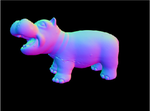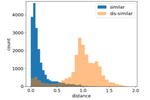Janek Zimoch
Data Scientist
Standard Charted Bank
About me
My name is Janek Zimoch, I am a software developer with 4 years of coding experience. My interests lie in full-stack web development and machine learning. My ambition is to become an expert in building full-stack software products, and I orient my personal and professional projects to grow in this direction.
I am curently working at Standard Charted Bank, where i develop signal-generation algorithms for algorithmic trading. In my free time, I develop web applications using Django and React. I graduated with commendation (Top 3-5) from an MPhil in Machine Learning and Machine Intelligence (MLMI) at the University of Cambridge, in 2021. Prior to that, I obtained first class honors in Mechanical Engineering at the University of Bristol, ranking Top 1-2 in the cohort of 150 students.
- Software development
- Full-stack web development
- Computer Vision
- Probabilistic Machine Learning
-
MPhil, Machine Learning and Machine Intelligence
2020-2021, Commendation, University of Cambridge, UK
-
MEng, Mechanical Engineering
2016-2020, University of Bristol, UK
-
Exchange year, Software Engineering
2018-2019, University of Texas at Austin, TX, USA
Experience
Article recommendation system
- Tech stack: Python, Transformers, TensorFlow, Dash (dashboarding), OOP, Git, unit testing.
- System design and development of recommendation system using object-oriented programming.
- Modules included: article embedding generator, readership history parser, dashboard UI for a demo, and other objects for model development (training, evaluation, visualisation).
Decision making algorithm for algorithmic trading
- Tech stack: Python, SQL, Data Science libraries, PostgreSQL (database), Docker (container), CI/CD
- Delt with high noise to signal ratio, by systematic (unit testing, statistical methods) and iterative (CI/CD) development.
- Developed domain knowledge about liquidity of bonds, market making, and trading strategies in OTC markets.
- Co-created PostgreSQL database with API and deployed it to a Docker container.
- Project objective: Reformulate surface normal regression in CNN based photometric-stereo task, as a conditional density estimation task using flexible Conditional Normalising Flows.
- Motivation: Conditional density estimation allows to regress entire posterior distribution rather than just its mean, as is the case in a deterministic formulation of regression tasks. Access to the full posterior distribution can improve quality of 3D surface integration by leveraging the full posterior distribution during inference. This will improve state of the art of a few light CNN based photometric stereo, where mapping from input to output may sometimes become ambigious due to shadows, color saturation, self-reflections and other complex light-surface interactions.
- Technology used: Python, Synthetic data generation in C++, PyTorch, Pyro, Conditional Normalising Flows, Graphics and Rendering theory.
- Thesis title: “Multimodal Scene Coordinate Regression: A Novel, Probabilistic Approach to Camera Re-Localisation in Ambiguous Environments”
- Motivation: In camera re-localisation (the task of regressing 6-DoF camera pose from an RGB image), the mapping from input to output can often be multimodal, due to structure, symmetry, and texturless surfaces in the environment. During my research, I extended the scene coordinate regression approach from unimodal to multimodal setting, to enable reasoning in such ambigious settings.
- Main Results: My multimodal framework reduced the position error by 48% as compared to the same backbone network, but with unimodal output head, when tested in a large indoor environment (James Dyson Building, Cambridge University Engineering Department).
- Deliverables: My framework consists of two parts: (1) multimodal scene coordiante prediction network and (2) Multimodal inference algorithm for 6-DoF camera pose. The mulitmodal scene coordiante prediction is based on of Mixture Density Network and Winner-Takes-All learning strategy. For the inference, I used Factor Graph to model the relationship between variables and then applied Belief Propagation algorithm to arrive at a marginal distribution over 6-DoF camera pose.
- Technology used: Python, TensorFlow, Keras, Feature Pyramid Network, Mixture Density Network, Winner-Takes-All learning strategy, Factor Graph, Belief Propagation.
- Paper in publication.
- Objectives: Joined team of 6 Data Scientist and Data Engineers to build an revenue prediction model for a client in advertisement industry.
- Responsibilities: Built threshold adjustment mechanism which was included in a package delivered to the client. Other responsibilities include: data exploration, feature engineering, building gradient boosting trees (LightGBM), hyper-parameter optimisation, time series forecasting using boosting trees, and bias adjustment.
- Technology used: Python, SQL, LightGBM, SciPy, SK-learn, Pandas, NumPy, Matplotlib, Seaborn.
- Objectives: Support consultants during their projects.
- Responsibilities: 2 main projects: (1) Research of the state and maturity of HR technology market in Poland, (2) Research on investment funds.
- Performance: Exceeded expectations.
Projects
Contact
- janekzimoch@gmail.com
- +44 7759 583944
- London, UK,









